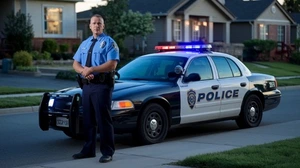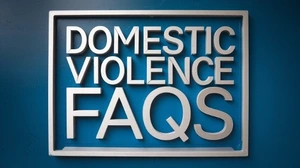Legal Advocacy
Domestic Violence Arrest FAQs: What Happens When the Police Arrive?
 Have questions about OBX domestic violence charges? This FAQ page explains what typically happens from the moment law enforcement arrives through an initial appearance in court. Learn how the police make decisions about the arrest decision and probable cause to arrest, how the booking process works, and what factors influence bond conditions. These questions and answers also clarify some of the immediate challenges that follow a domestic violence charge, such as how a no-contact order might apply.
Have questions about OBX domestic violence charges? This FAQ page explains what typically happens from the moment law enforcement arrives through an initial appearance in court. Learn how the police make decisions about the arrest decision and probable cause to arrest, how the booking process works, and what factors influence bond conditions. These questions and answers also clarify some of the immediate challenges that follow a domestic violence charge, such as how a no-contact order might apply.
Each section of the FAQs is intended to help you understand your rights and obligations. If you want to address specific concerns about your personal situation, seek legal counsel. The Glover Law Firm in Elizabeth City helps clients with domestic violence cases in the Outer Banks region. We provide a free initial consultation and would be honored talk with you about defense strategies, bail, and how to navigate DV charges in a clear, informed way.
A police officer’s decision to arrest does not solely depend on the alleged victim’s wishes. In North Carolina, officers respond to possible domestic violence with the goal of preventing harm. If officers see signs of an assault or a threat of harm, they may have probable cause for an arrest. The legal system treats domestic violence allegations seriously because of the potential for continued conflict or risk. Even if the accuser says they do not want to press charges, the police can still arrest you if they conclude a violation of the law took place. From that point forward, prosecutors determine whether to move forward in prosecuting DV charges. This approach is meant to stop scenarios where someone might be pressured to “drop” accusations due to fear or influence.
Assault vs. Affray: What's the Difference?
Probable cause is a legal standard. It means that an officer has enough evidence to believe you committed a crime. For domestic violence, it can involve physical injuries, statements from witnesses, and signs of property damage consistent with an altercation. In making the arrest decision, an officer determines whether there are reasonable grounds to conclude that a criminal act occurred. This bar is lower than what is required for a conviction at trial, which is proof beyond a reasonable doubt. Probable cause allows police to arrest you on the spot, even if they did not see what happened. As such, DV charges do not require a warrant for arrest if probable cause exists. While you may feel the evidence is weak, the decision rests largely on the officer’s immediate assessment.
If you are arrested, you’ll be brought to the local jail or police station for booking. This usually involves having your photograph and fingerprints taken. The officers will collect personal details like your full name, address, and date of birth. If you have personal belongings, they may be inventoried and held until you are released. You might also be asked questions about your medical or mental health needs to ensure they address any safely concerns while in custody. After booking, you will ordinarily wait in a holding cell or jail area until a judge or magistrate sets bond (bail). Because domestic violence charges require a judge to review bond conditions in North Carolina, you could be held longer than a normal misdemeanor arrest. This can be unsettling, but it is part of North Carolina’s approach to domestic violence cases.
If you are arrested on domestic violence charges in North Carolina, a district court judge—not a magistrate—is responsible for setting conditions of release. State law allows you to be held in custody for up to 48 hours while waiting for a judge to review your case. If a judge is unavailable within that time, a magistrate can step in to set bond and release conditions. This rule can mean delays, especially if you're arrested on a weekend or holiday, since court may not be in session. While this waiting period can be frustrating, the intent is to ensure a judge—who has experience with domestic violence cases—reviews the situation and can impose specific conditions, such as no-contact orders or firearm restrictions, before release.
During your first appearance, a judge (or magistrate if no judge is available after 48 hours) will review the nature of the charges, your background, and any risk factors. The judge sets your bond amount (if any) and terms and conditions of release. This could be a no-contact order, EHA - Electronic House Arrest, a requirement to avoid alcohol, or a prohibition on possessing firearms. The judge’s duty is to balance your rights with the safety concerns for the alleged victim. If the judge sets a bond you can afford or an “unsecured bond” is authorized, you’ll be released once you sign the paperwork or post any required funds or bond collateral.
In some domestic violence cases, the court may require you to stay away from the alleged victim’s residence as a condition of your release, even if it’s also your home. This is meant to reduce potential conflicts and protect all parties from further incidents. You might need to find temporary housing with family, friends, or through community resources. If you need to retrieve personal belongings from a shared house, you might be allowed to do so with police supervision. Willfully violating a no contact order is a terrible decision and will in all likelihood result in being taken back into custody (going to jail). Put simply, you can be arrested again and held without bond. That’s one reason it is important to follow all court orders regarding terms and conditions for release.
No. You must follow any no-contact rules exactly as ordered by the court. If the no-contact condition prohibits any communication, even if the other person initiates contact. If they call, text, or send a message on social media, you need to refrain from engaging. There is a formal process by which the court may consider modifying an existing release order, but until it’s changed, you have to comply. If you violate the condition, the judge can revoke your bond and put you back in jail. This can be frustrating if you believe the other person wants to reconcile, but legally you should not respond unless the judge amends the order in a hearing.
Unfortunately, many arrests create difficulties with employment, especially if your work requires background checks, are required to carry a gun, and certain professional licenses. Some employers may place you on leave until the case is resolved. If the job involves childcare, security, or a public trust position, your employer might have policies about arrests. If you are ultimately convicted, that record could have a greater impact on your career path. Each employer handles such matters differently. That’s one reason it’s advisable to consult with an attorney with experience handling DV charges.
Penalties depend on the specific offense. A simple assault labeled as domestic violence might result in probation, counseling, or a short jail sentence if you have no previous record. More serious offenses, like felony assault by strangulation or habitual assault, can lead to longer jail or prison sentences. You will likely have a no-contact order or other terms if you’re found guilty. Additionally, federal law bans anyone convicted of domestic violence from owning or purchasing guns. You also face a criminal record that may be permanent unless an expungement is available under North Carolina law, which is by no means guaranteed. That record can affect housing, employment, and even child custody issues in the future.
We think it’s a good idea to speak with a lawyer as soon as you can. You may face immediate decisions about bond, whether to give a statement to police, and negotiations with the district attorney’s office. A defense lawyer can guide you on how to protect your rights, possibly avoid self-incrimination, and gather evidence (like witness statements) that might help your case. If you wait until the next court date, you might miss opportunities to build a defense strategy or address problems early on. A lawyer familiar with local practices in the Outer Banks can also advise you about any regional nuances in Dare County courts.
After an OBX DV Arrest: Call Glover Law Firm
 A domestic violence arrest in the Outer Banks is a big deal, even if you did absolutely nothing wrong. It’s normal to be concerned about posting bond, living arrangements, or contact with loved ones. We’ve found it’s helpful to understand the process and your obligations, from the time of arrest through all court appearances. Remember, you have a Fifth Amendment Right to remain silent, and a Sixth Amendment Right to legal counsel who can advocate for fair bond conditions.
A domestic violence arrest in the Outer Banks is a big deal, even if you did absolutely nothing wrong. It’s normal to be concerned about posting bond, living arrangements, or contact with loved ones. We’ve found it’s helpful to understand the process and your obligations, from the time of arrest through all court appearances. Remember, you have a Fifth Amendment Right to remain silent, and a Sixth Amendment Right to legal counsel who can advocate for fair bond conditions.
If you are unsure about any terms and conditions for release from jail or need to modify a no-contact order, consult a domestic lawyer. Don’t navigate the legal system alone. Find the help you need now, so you can focus on getting your life back on track. A clear plan and informed approach can give you a path forward. OBX lawyer Danny Glover is available for consultation. Take the first step and call or text 252-299-5300 the Glover Law Firm now.
 Glover Law Firm Home
Glover Law Firm Home










